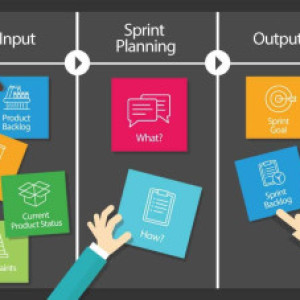Motivation Theory To Bring The Best Out Of Your Team
Motivation is a critical factor in the success of any team. It drives individuals to perform at their best and achieve their goals. As a leader, it's essential to understand the different theories of motivation and how to use them to inspire and engage your team.
There are several different theories of motivation, each with its own unique approach to understanding and influencing human behavior. Some of the most prominent theories include Maslow's Hierarchy of Needs, Self-Determination Theory, and Expectancy Theory.
Maslow's Hierarchy of Needs
Maslow's Hierarchy of Needs is a theory of motivation that proposes that people are motivated by a hierarchy of needs that must be met in order for them to reach their full potential. According to Maslow, there are five levels of needs: physiological, safety, belonging, esteem, and self-actualization.
At the bottom of the hierarchy are physiological needs, which include basic needs such as food, water, and shelter. These needs must be met before an individual can move on to the next level.
Once physiological needs are met, individuals will seek to fulfill their safety needs. This includes a sense of security and protection from harm.
Once safety needs are met, individuals will seek to fulfill their belonging needs. This includes a desire for love, acceptance, and a sense of community.
Once belonging needs are met, individuals will seek to fulfill their esteem needs. This includes a desire for self-esteem, recognition, and respect from others.
Finally, once esteem needs are met, individuals will seek to fulfill their self-actualization needs. This includes a desire for personal growth and self-fulfillment.
Maslow's Hierarchy of Needs suggests that individuals are motivated by a desire to fulfill these basic needs, and that as they move up the hierarchy, they become more self-motivated and focused on personal growth and development.
Self-Determination Theory
Self-Determination Theory is a theory of motivation that proposes that people are motivated by three basic psychological needs: autonomy, competence, and relatedness.
According to this theory, people are motivated when they feel that they have control over their own lives and can make their own decisions. This sense of autonomy is critical for motivation because it allows people to feel that they are in charge of their own lives and that their actions have purpose.
In addition to autonomy, people are motivated when they feel competent and capable of achieving their goals. This sense of competence helps individuals to feel confident and capable, which can lead to increased motivation and performance.
Finally, people are motivated when they feel connected to others and have positive relationships. This sense of relatedness helps individuals to feel supported and valued, which can lead to increased motivation and engagement.
Self-Determination Theory suggests that people are motivated when they feel that their basic psychological needs are being met and that they have control over their own lives.
Expectancy Theory
Expectancy Theory is a theory of motivation that proposes that people are motivated by their beliefs about their own ability to perform a task and the outcomes that they expect to receive as a result.
According to this theory, people are motivated when they believe that they have the skills and abilities to complete a task and that the effort they put in will lead to positive outcomes. If individuals do not believe that they have the skills or ability to complete a task or that the outcomes will not be positive, they are less likely to be motivated.
Expectancy Theory suggests that people are motivated when they believe that their efforts will lead to successful task completion and desirable outcomes.
Vroom’s Expectancy theory
Vroom's Expectancy Theory is a theory of motivation that proposes that people are motivated by the belief that their efforts will lead to good outcomes and that they have the skills and abilities to perform a task. According to this theory, the motivation to perform a task is determined by three factors:
-
Expectancy: This refers to the belief that one's efforts will lead to good outcomes. If individuals believe that their efforts will be successful, they are more likely to be motivated.
-
Instrumentality: This refers to the belief that good performance will lead to desired outcomes. If individuals believe that good performance will be rewarded, they are more likely to be motivated.
-
Valence: This refers to the value that individuals place on the outcomes of their efforts. If individuals value the outcomes of their efforts, they are more likely to be motivated.
Vroom's Expectancy Theory suggests that the motivation to perform a task is influenced by the individual's beliefs about their own ability to perform the task, the perceived value of the outcomes, and the belief that good performance will lead to those outcomes. By understanding and addressing these factors, leaders can increase motivation and performance in their teams.
Reinforcement theory
Reinforcement Theory is a theory of motivation that proposes that behavior is motivated by the consequences that follow it. According to this theory, if a behavior is followed by a positive consequence (a reinforcer), the likelihood of that behavior occurring again in the future is increased. On the other hand, if a behavior is followed by a negative consequence (a punisher), the likelihood of that behavior occurring again in the future is decreased.
There are two types of reinforcement: positive reinforcement and negative reinforcement. Positive reinforcement occurs when a behavior is followed by a desirable consequence, such as a reward or praise. This increases the likelihood of the behavior occurring again in the future. Negative reinforcement occurs when a behavior is followed by the removal of an unpleasant consequence, such as a task or activity being completed. This also increases the likelihood of the behavior occurring again in the future.
Reinforcement Theory suggests that behavior is motivated by the consequences that follow it. By understanding and using reinforcement effectively, leaders can increase motivation and performance in their teams.




